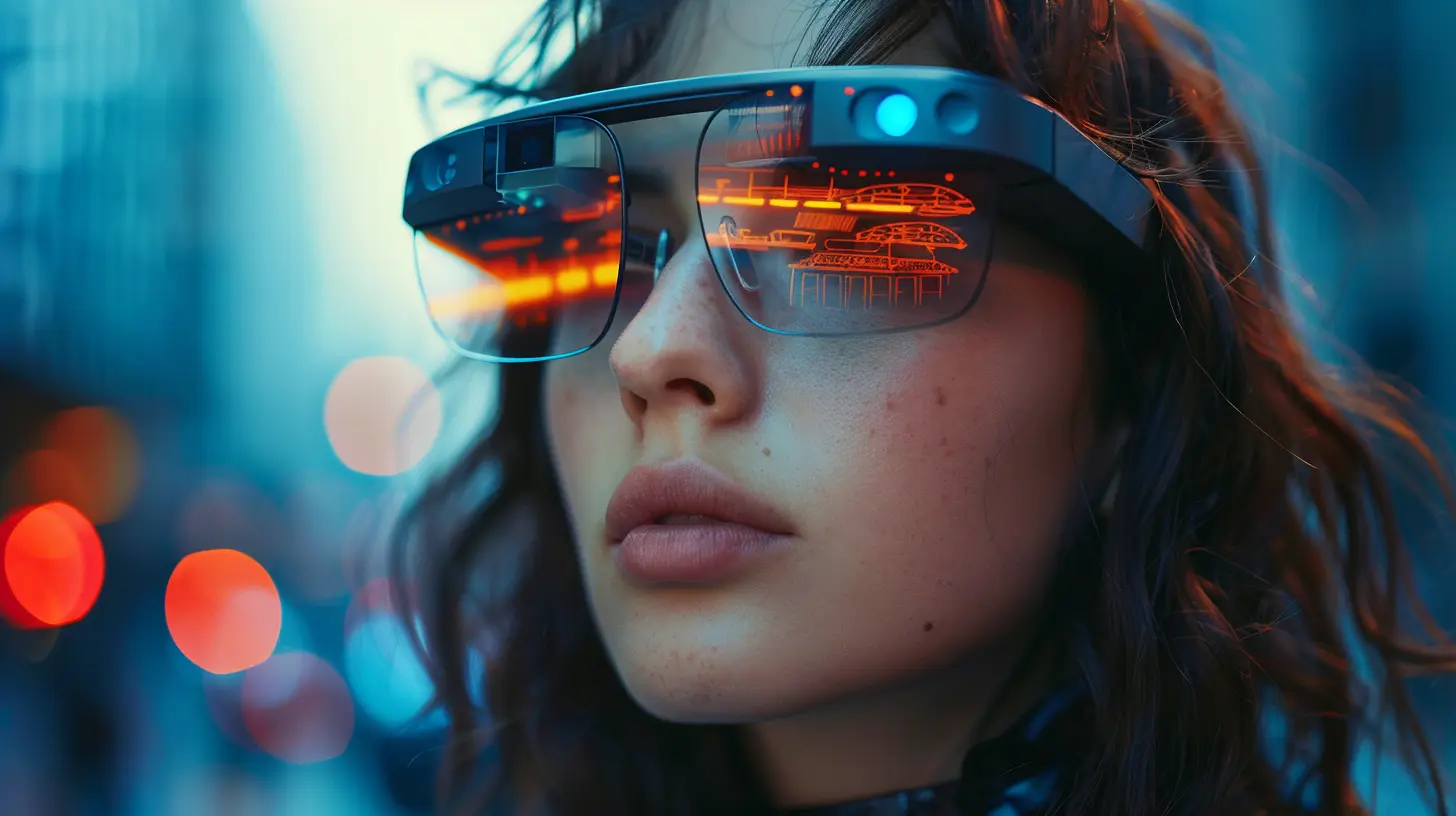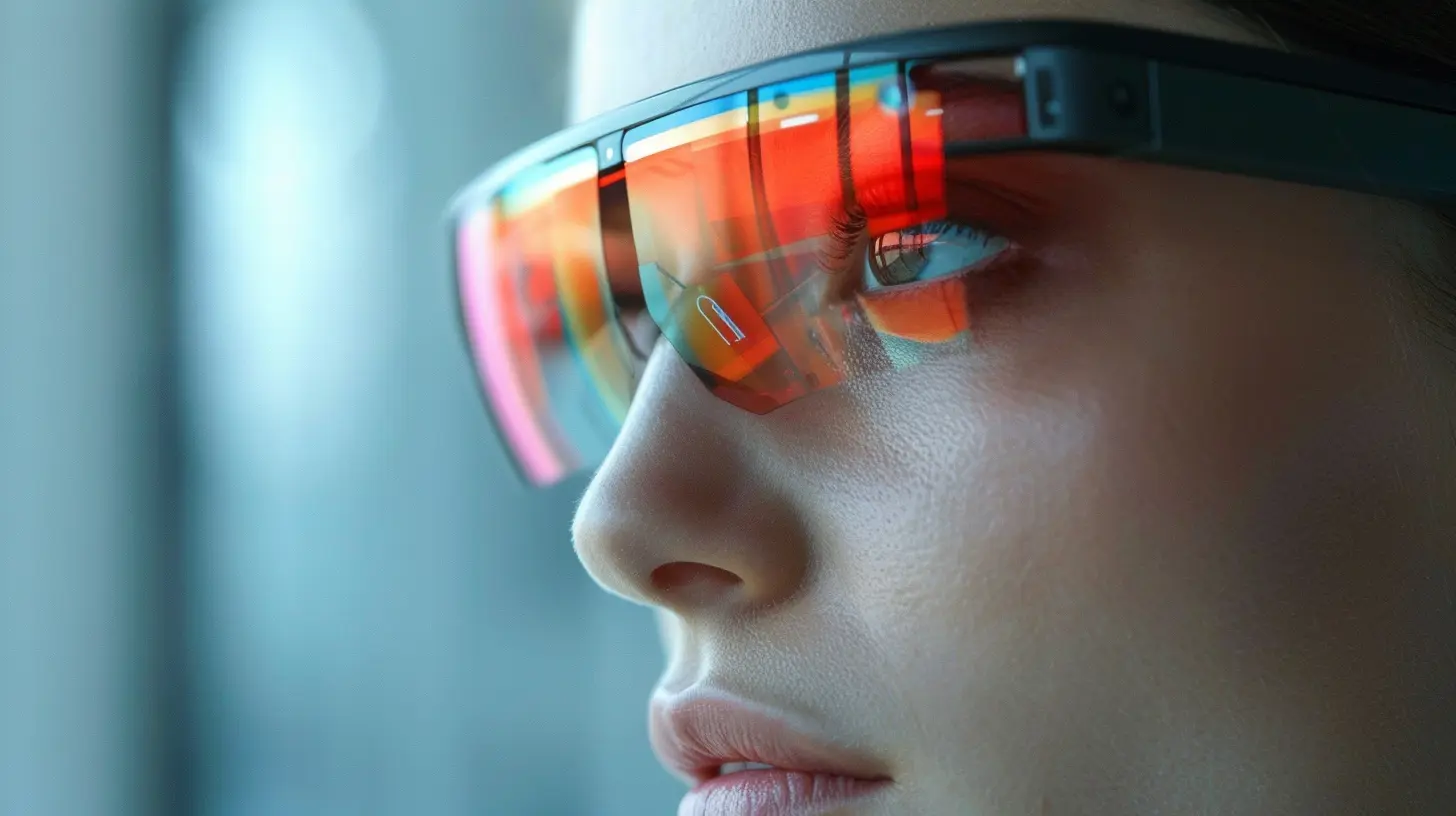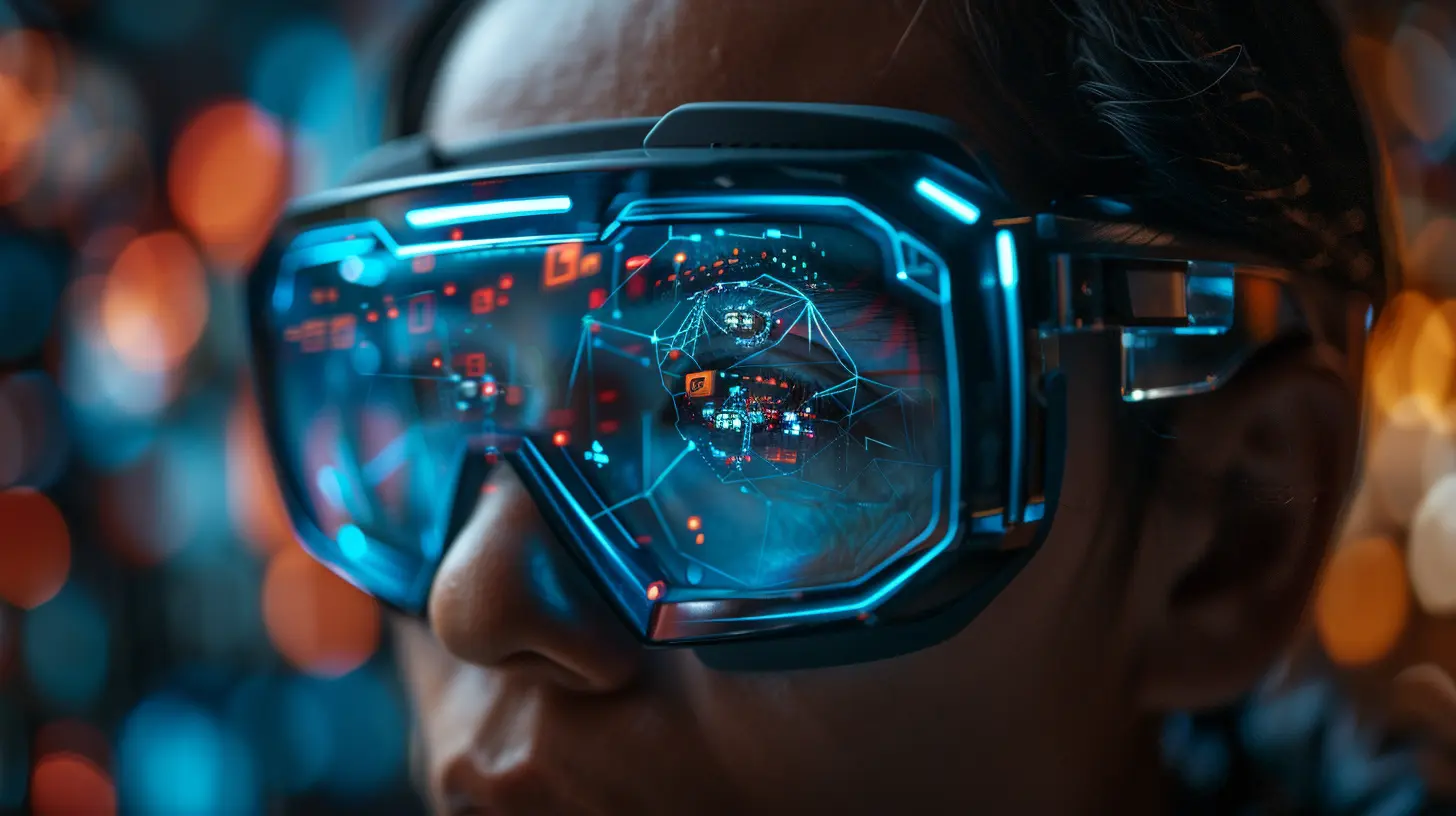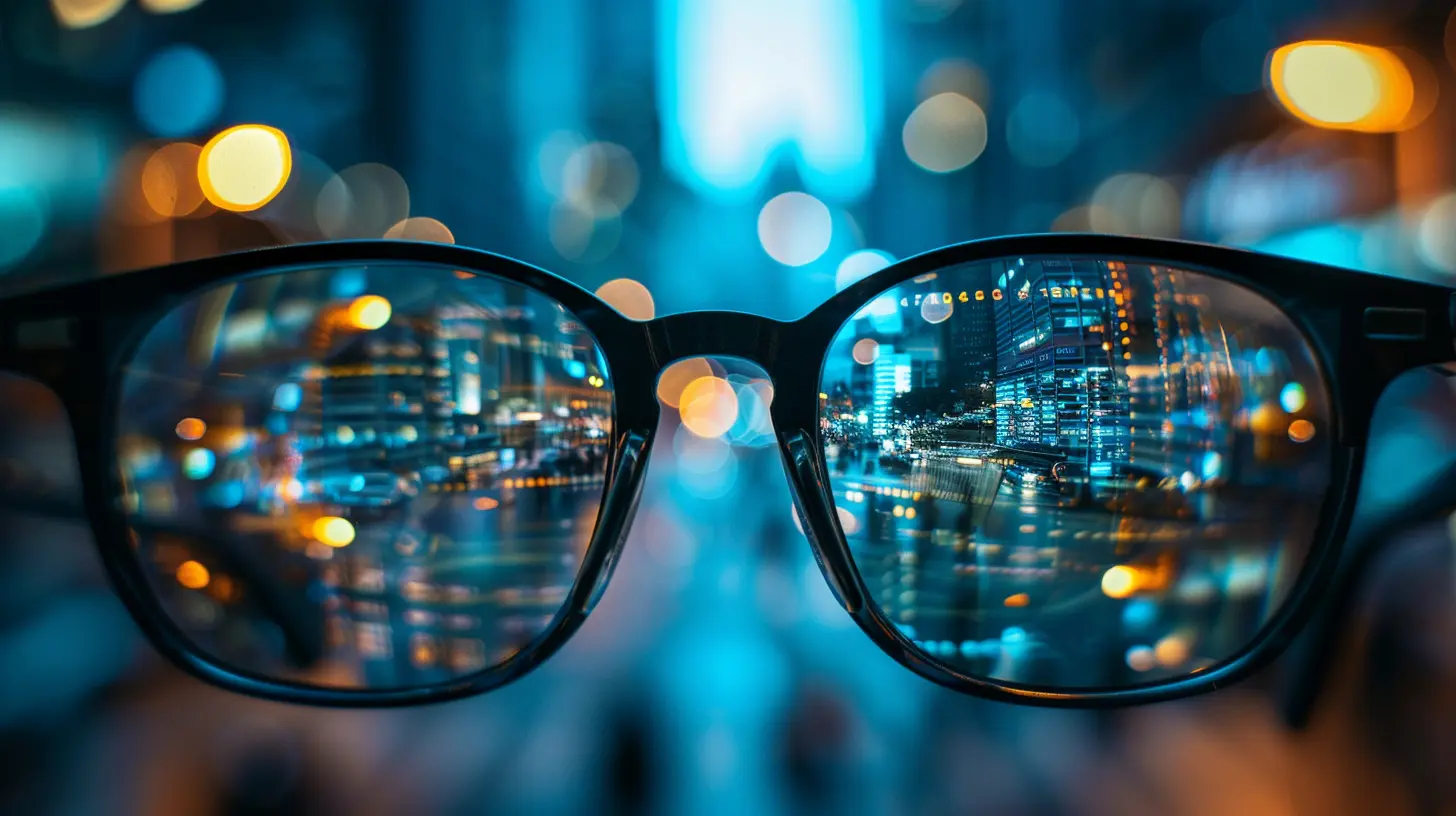The Privacy Concerns Surrounding AR Glasses
8 June 2025
Augmented Reality (AR) glasses are changing the way we experience the world, blending digital elements with real life. From gaming to navigation, these futuristic wearables promise endless possibilities. But with great innovation comes a major concern—privacy.
Are AR glasses just another trojan horse for constant surveillance? Or can we find a balance between convenience and privacy? Let's unpack the privacy concerns surrounding AR glasses and what this means for our digital future.

What Are AR Glasses?
Before diving into privacy concerns, let's break down AR glasses. These smart glasses overlay digital information on the real world, enhancing what we see and interact with.Big tech companies like Apple, Google, and Meta are racing to dominate the AR space. Whether it's real-time navigation, facial recognition, or hands-free notifications, AR glasses aim to make life more seamless. But at what cost?

The Major Privacy Concerns
While these gadgets look cool and promise convenience, they come with serious privacy issues. Here are the biggest concerns:1. Constant Surveillance
Imagine walking down the street and realizing someone wearing AR glasses is recording you—without your permission. Sounds unsettling, right? Unlike smartphones, where recording is obvious, AR glasses can secretly capture pictures, videos, and even audio in real time.This raises ethical questions: Should people have the right to record others without consent? And how do we prevent this from being misused?
2. Facial Recognition and Data Collection
Some AR glasses, especially those developed by big tech firms, are equipped with facial recognition. While this sounds futuristic, it also means these devices can identify people instantly and pull up personal data.Now, think about this—what if someone walks into a room, and their AR glasses immediately reveal private details about everyone around them? This could lead to a world where anonymity is practically nonexistent.
Corporations and governments could use this technology for mass surveillance, tracking people without their knowledge. And as history has shown, once surveillance power is in the hands of big organizations, it’s tough to control how it’s used.
3. Hacking and Cybersecurity Risks
Whatever is connected to the internet can be hacked—including AR glasses. If a hacker gains access to someone’s AR glasses, they can see everything the user sees, track their location, and even activate the camera or microphone remotely. Scary, right?Cybercriminals could steal sensitive data, including banking details, private conversations, and personal habits. The privacy risk isn’t just about being recorded—it’s about who has access to that information.
4. Third-Party Data Sharing
We already know that many tech companies collect and sell user data. If AR glasses become mainstream, will they become just another tool for data harvesting?Think about how websites track your browsing habits. Now, imagine AR glasses tracking everything you look at in real life—what stores you visit, what products you focus on, and who you interact with. Advertisers would love to get their hands on this kind of data.
5. Lack of Clear Regulations
Technology often evolves faster than the laws regulating it. AR glasses fall into a gray area regarding privacy laws. Can law enforcement demand access to recordings? Can businesses ban AR glasses from their stores?We’ve already seen legal debates around smart home devices and voice assistants collecting data. AR glasses will likely face similar challenges, and until clear regulations are in place, users and bystanders are left vulnerable.

Can We Strike a Balance Between AR and Privacy?
Despite the concerns, completely rejecting AR glasses may not be the solution. Instead, we need to think about how to use them responsibly while protecting our privacy.1. Stronger Privacy Laws
Governments and lawmakers must create regulations to prevent misuse. There should be strict guidelines on recording without consent, data storage policies, and how companies can use AR-generated data.2. Built-In Privacy Features
Tech companies should take privacy seriously when designing AR glasses. Features such as visible recording indicators (like a blinking light), encryption for user data, and manual consent for facial recognition could help reduce privacy risks.3. Public Awareness
Many people are unaware of how much data is being collected through connected devices. Educating users about the risks of AR glasses—and how to use them ethically—is crucial. If people demand better privacy protections, companies will be forced to listen.4. Opt-Out Options
Individuals should have the right to opt-out of being recorded or tracked by AR glasses. Public spaces, businesses, and private homeowners should have the ability to prohibit AR glasses if they feel uncomfortable with the potential surveillance.
Final Thoughts
AR glasses are an exciting innovation, but they also open Pandora's box of privacy concerns. If we’re not careful, they could turn society into a real-life episode of Black Mirror, where privacy becomes a relic of the past.To ensure AR glasses enhance our lives without turning us into walking surveillance cameras, we need better laws, responsible tech development, and greater awareness. The future of AR looks bright—but only if we safeguard our privacy in the process.
all images in this post were generated using AI tools
Category:
Ar GlassesAuthor:

Gabriel Sullivan
Discussion
rate this article
3 comments
Brigitte McGuffin
This article sheds light on critical privacy issues with AR glasses. It’s essential for users to stay informed and cautious.
June 22, 2025 at 4:02 AM

Gabriel Sullivan
Thank you for your insight! Staying informed about privacy issues with AR glasses is indeed crucial for users.
Raegan Jordan
The article thoughtfully highlights the dual-edged nature of AR glasses, emphasizing the innovative potential they offer alongside significant privacy risks. Striking a balance between technological advancement and user privacy should be a priority for developers and regulators alike.
June 15, 2025 at 11:30 AM

Gabriel Sullivan
Thank you for your insightful comment! Striking that balance is indeed crucial as we navigate the future of AR technology.
June McDonald
AR glasses: the ultimate way to see everything while being seen by everyone! It's like wearing a digital magnifying glass—perfect for reading the fine print on your privacy rights while simultaneously ignoring them. Who's watching whom, again?
June 10, 2025 at 4:12 AM

Gabriel Sullivan
Exactly! AR glasses highlight the paradox of technology: enhancing our view while compromising our privacy. It's crucial to address these concerns as we navigate this new digital landscape.



